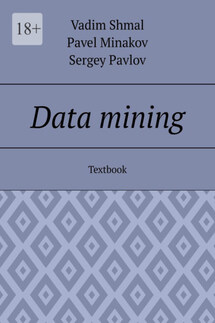Intelligent transport systems development - страница 9
■ improving the efficiency of using the existing railway network by more evenly distributing railway rolling stock in time and space;
■ improvement of technological, informational and social components of traffic safety;
■ providing managers at all levels with the necessary information to make operational and strategic decisions based on modeling and assessing the impact on the transport system of new and modernized transport facilities;
■ formation of a rapid response scheme of transport services, which allows to quickly take measures in case of emergencies, adverse weather conditions, etc.;
■ creation of monitoring systems for transport infrastructure and traffic conditions, allowing to assess the state of the transport system in real time and predict its changes.
3 MODERN SCIENTIFIC AND METHODOLOGICAL APPROACHES TO THE ITS CREATION IN RAILWAY TRANSPORT
To date, there is no unified understanding of what intelligent transport systems are. In many publications and speeches, they are more or less identified with conventional automated transport systems. An important feature of ITS, which makes it possible to distinguish such systems into a separate class and even into a separate area of research in railway science, is the formal logical and mathematical tools used to solve problems from the standpoint of a system-wide approach to the analysis and management of all systems and processes in railway transport.
It should be emphasized that modern railway transport belongs to the category of extremely complex technical and organizational systems, the management of which is currently practically impossible within the framework of previously established traditional approaches. The complexity of the transport infrastructure and its facilities (railway junctions, stations, transport corridors, etc.) fundamentally excludes the possibility of working in a fully automatic mode. In other words, it is impossible to effectively manage such a system only with the involvement of classical methods for solving complex mathematical modeling problems, search and development of new approaches are required. At the same time, great hopes are placed on intelligent systems that, along with accurate mathematical models, use data and knowledge accumulated in the course of their activities. The work of such systems can, and sometimes should, be based on the formalized experience of highly qualified specialists. Proceeding from this, JSC «Russian Railways» now needs to develop the fundamental foundations for the creation of intelligent railway systems using complex interdisciplinary approaches that can find practical application in a short time.
Special attention should be paid to the fact that railway transport management systems, as well as complex systems in general, are characterized by fundamental inaccuracy and uncertainty in both data and management decisions. This makes it possible to attribute such systems from a mathematical point of view to the class of incorrect tasks and makes it possible to evaluate the quality of technical and managerial decisions in a different way. In this case, the promptness of the decisions taken plays a greater role than their optimality, understood in a strict mathematical sense. This quality is an important property of intelligent systems [14,15,16].









